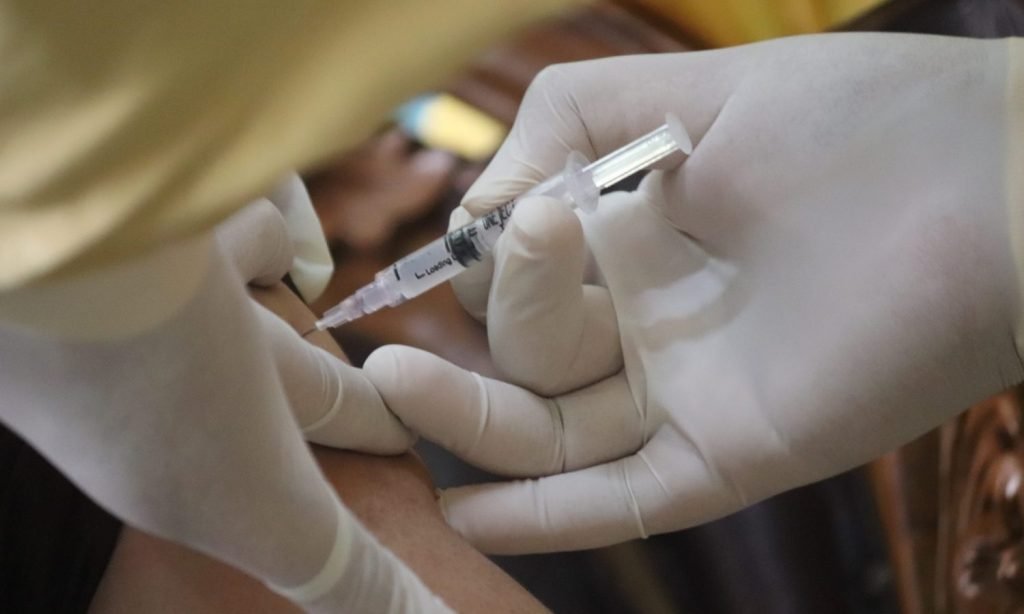
In partnership with The Fresh Toast
Does the booster shot mean the pandemic is over? As most things are in this pandemic, it’s kind of complicated.
Over the past couple of years, the word “normal” has sort of lost its meaning. Every time we get vaccinated, or a new COVID-19 strain appears, we start to ask ourselves when our lives will go back to the way they used to be, pre-pandemic. This question is personal to everyone, depending on their level of risk, where they live, and experience with the virus.
Now that booster shots are in the equation, meaning that a lot of people have started getting their third round of vaccines, what does this mean when it comes to everyday life?
The initial round of shots protect people from the virus for a period of about six months. After that, breakthrough COVID-19 is more likely, even for those mostly protected from serious illness. Here’s what experts know about the booster and what “normal” means right now.
What the booster does

There’s a lot of questions surrounding the booster since we’re pretty early on in its process of administration. The COVID-19 booster should be very helpful for people with a weaker immune system or people who are older or who have to deal with comorbidities. These were the people who were first approved for the booster, reaping the most benefits.
People who received the Johnson & Johnson shot and are now getting boosters should also experience significant benefits. A study from the National Institute of Health said that these people had a 35 fold and 74 fold rise in antibodies after they either got their Pzifer or Moderna booster.
RELATED: This Common Disorder Could Make COVID-19 Worse
People who had their Moderna and Pfizer shots should get their booster once their six months have passed. While you won’t be invincible, it stands to reason that a booster would increase the antibodies in your system and protect you more against the virus, allowing you to hang out in public spaces — whether that’s school, the office, or wherever — with more comfort.
It’s all about your situation

Whether you can go back to normal or not depends on how many variables you have to deal with. If you have an immune system that’s not as robust or if you have comorbidities to contend with and live in an area with high rates of COVID-19 transmission, you should be careful when going out to crowded spaces, especially if indoors.
RELATED: COVID-19 Survivors May Experience These Two Newly Discovered Side Effects
When meeting with others, it’s important to account for their vaccination status. If they’re unvaccinated, there’s more risk all around, whether that means you or your family members, who might be older or might be dealing with comorbidities.
Consider rapid tests

A helpful tool to consider over the holiday season would be the use of rapid tests. Before the season kicks in full gear, purchasing some of these tests can make it easier for people to spend time with others not that they know that everyone involved is safe. While they don’t completely eliminate risk, but they make the pandemic a little bit more manageable and contagion more unlikely, especially if everyone involved is vaccinated.
Read more on The Fresh Toast
Advertising disclosure: We may receive compensation for some of the links in our stories. Thank you for supporting Irvine Weekly and our advertisers.
